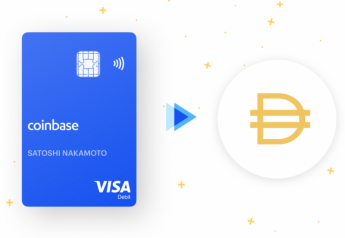Asset management has traditionally been reserved for institutional or high net worth investors (HNWI) due to complex regulatory frameworks and the overall cost of investments. The high demands placed on asset managers, family offices and private banks significantly increase the price of financial advice and asset management services. Professional traders and asset managers must have a brokerage account, while wealth managers have additional fiduciary duties. Most financial service providers must also adhere to Know Your Customer (KYC) and Anti-Money Laundering (AML) rules while navigating the maze of privacy guidelines (GDPR),
It’s no wonder then that fintech startups using sophisticated machine learning, CRMs, and widespread automation are quickly disrupting financial niches and bankrupting operators. From neobanks surpassing traditional financial institutions, to robotic advisory machine algorithms teaching clients how to invest instead of human advisers, to the new tokenization platform offering the whole new world of assets; financial markets appear to be on the verge of a paradigm shift with the emergence of a new asset management environment.
What is tokenization?

Tokenization understood as the use of tokens to represent an asset has been around for centuries, says Shermin Voshmgir, a PhD. of Economics and director of the Cryptoeconomics Research Lab at the University of Vienna. However, with the recent invention of blockchain technology, explained in the Pinnacle 2009 white paper, asset tokenization is now set to completely disrupt the asset management industry.
Tokenization on the blockchain means that ownership of the asset can be expressed in the form of a digital token. The token is a piece of code that contains proof of purchase and contract details. Transactions between buyers and sellers of tokens are done on the blockchain so that ownership of the token can be time stamped and tracked on the digital ledger record. So what’s so disturbing about this? The answer lies in the characteristics of what we call distributed blockchains and the emerging field of DeFi or decentralized finance.
The importance of blockchain in the tokenization of assets
Blockchains could be described as another type of database or digital ledger with a specific set of characteristics that makes it particularly useful for the tokenization of financial assets.
The blockchain is distributed and decentralized, which means that a copy of the blockchain is stored on private computers all over the world, and it is difficult for hackers, governments or other entities to track and influence all of them. the copies. The blockchain does not have a single point of failure like data centers which could be subject to attacks and data tampering.
The blockchain is also time-stamped and immutable, which makes records secure as well. For example, data is submitted to blocks, where each block in the chain contains a hashed number of previous blocks. The smallest change in data will change the hash, making the fault instantly visible throughout the chain and easy to dismiss by the network.
Most common blockchains have their own distributed governance or a network of computers encouraged by the system to validate correct transactions by reaching majority consensus. The system is inherently designed to operate without the need for trusted third parties like governments or lawyers to oversee the process. Indeed, transactions made on the blockchain are both more secure and much cheaper than those in the traditional financial sector, which opens the possibility for new companies and investors to join the market.
New world – new assets
The management and investment of assets are currently facing multiple challenges. Traditional investment vehicles are often too expensive for retail investors; these are the common people willing to invest small amounts. The system often inflates brokerage fees with minimum investment amounts exceeding $ 5,000. Ownership is both expensive and time consuming and requires many third parties such as notaries, banks and lawyers.
New robotic investment and advisory applications like Robin Hood and Acorns are gaining ground and opening up markets to a wider audience. However, they are still not available globally, and traditional regulatory frameworks hamper the wider disruption.
These are assets symbolized on the blockchain that could push the momentum forward. Tokenization offers a new world of potentially borderless assets, accessible from anywhere at any time and instantly transferable at minimal cost.
Researchers, businesses and exchanges are currently working with regulators to build new legal frameworks. In the meantime, tokenization already offers a fast and automated way to secure assets while complying with local ordinances. Once smart contracts are legally validated, they can be used across the board to symbolize any kind of real world asset, from real estate to art and collectibles.
Why real-world asset tokenization will change asset management

There are many incredible benefits to using asset tokenization and blockchain to disrupt the asset management scene. Blockchain offers low transaction fees, instant transfer of ownership, and most importantly, seamless access from anywhere in the world via the internet or even completely offline.
With open public blockchains, it is easier for everyone to participate in the exchange of assets regardless of their financial situation. It’s also easier to monitor and audit your assets, although owner privacy is still protected and actual blockchain data encrypted with hash algorithms.
Assets that were previously expensive, illiquid, and difficult to buy and sell can now be instantly digitized and sold as tokens to one or more different buyers. This type of shared ownership and asset management may soon become a new trend in real estate investing , similar to real estate crowdfunding.
Various technical and legal issues still need to be addressed before tokenization of assets on the blockchain becomes mainstream. Yet the exchange of crypto-currencies and traditional exchanges are fighting already for the share of this emerging market and build new asset management frameworks. Many are already working with their local regulators to develop alternative regulatory environments for what they hope will become a new asset class, crypto assets.
 English
English  French
French 

